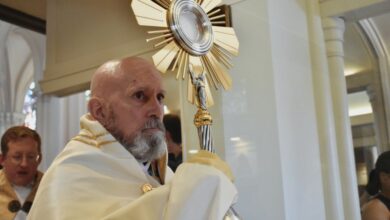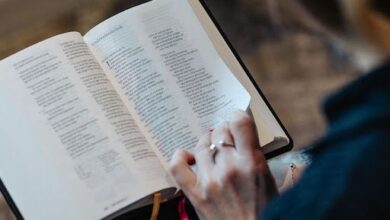Catholic Church’s new cardinals explain why they chose their spiritual mottos
 Archbishop Stephen Ameyu Martin Mulla of Juba and his episcopal coat of arms (top left); Bishop Stephen Chow of Hong Kong and his episcopal coat of arms (top right); Bishop Américo Aguiar of Setúbal, Portugal, and his coat of arms (bottom left); Archbishop Stephen Brislin of Cape Town and his coat of arms. / Credit: ACI Africa; Archdiocese of Juba; Society of Jesus/Diocese of Hong Kong; Patriarchate of Lisbon; Archdiocese of Cape Town
Archbishop Stephen Ameyu Martin Mulla of Juba and his episcopal coat of arms (top left); Bishop Stephen Chow of Hong Kong and his episcopal coat of arms (top right); Bishop Américo Aguiar of Setúbal, Portugal, and his coat of arms (bottom left); Archbishop Stephen Brislin of Cape Town and his coat of arms. / Credit: ACI Africa; Archdiocese of Juba; Society of Jesus/Diocese of Hong Kong; Patriarchate of Lisbon; Archdiocese of Cape Town Rome Newsroom, Sep 28, 2023 / 15:42 pm (CNA).
Each of the new cardinals receiving the red hat at the consistory on Saturday has a chosen spiritual motto, giving a window into their spirituality and priorities.
Episcopal mottos selected when a Catholic priest is consecrated as a bishop are traditionally found at the base of his coat of arms and often remain unchanged when a cardinal becomes pope.
Pope John Paul II proclaimed his total devotion to the Virgin Mary with the motto “Totus Tuus” (“Totally Yours”), taken from St. Louis Grignion de Montfort’s Marian consecration prayer. Pope Benedict XVI chose “Cooperatores Veritatis” (“Cooperators of the Truth”) from Scripture in 3 John 1:8, and Pope Francis’ motto is taken from a homily by St. Bede on the Gospel account of the call of St. Matthew: “Miserando atque eligendo” (“Having mercy, he chose him”).
Among the 21 cardinals being created on Sept. 30, there are some unique mottos and imagery from a motto in Swahili to a giraffe on the coat of arms of a bishop from Asia.
Here is a look at the spiritual motto and coat of arms for each of the new cardinals eligible to vote in a conclave to elect the next pope:
Cardinal Grzegorz Ryś, 59, Poland, “Virtus in infirmitate” (“Power in weakness”).
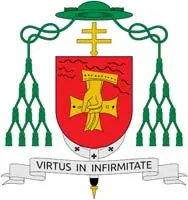
Ryś chose his motto from a line in St. Paul’s Second Letter to the Corinthians, noting that it sounds stronger in the original Greek, like “power matures in powerlessness” (2 Cor 12:9). The archbishop of Łódź, Poland, and author of more than 50 books said: “If we stop understanding weakness, the Church will become an organization like any other. The preaching of Christianity is the story of Christ, who was crucified and rose again. Without the cross, there is no Church.”
Cardinal Pierbattista Pizzaballa, OFM, 58, patriarch of Jerusalem, “Sufficit tibi Gratia mea” (“My grace is sufficient for you”).

When Pizzaballa became the Latin patriarch of Jerusalem, he explained why he chose a line by St. Paul (2 Cor 12:9) as his motto: “The Church in the Holy Land has no means and no power. She only has Christ and his grace.” The Italian Franciscan who served for more than a decade in the Holy Land said that in the face of the seemingly “huge and insurmountable” difficulties facing the region, the “word of God reminds us that it is to grace alone, and nothing else, that we should entrust ourselves.” His coat of arms includes an image of the city of Jerusalem as it was depicted in the Middle Ages on seals of the Latin kingdom of Jerusalem.
Cardinal Stephen Chow Sau-yan, SJ, 64, Hong Kong, “Ad Majorem Dei Gloriam” (“For the greater glory of God”).
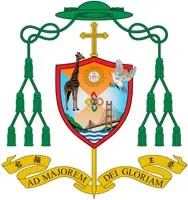
The Jesuit bishop of Hong Kong chose the motto of the Society of Jesus as his episcopal motto. His coat of arms includes a giraffe, which Chow has explained symbolizes being able to see the big picture. Chow also noted that giraffes are known for having big hearts to pump enough blood to their heads and can therefore be considered a symbol of generosity. The coat of arms includes an image of Hong Kong’s Tsing-Ma Bridge, which Chow described as a symbol of the mission of the Church to form a bridge for different parties to meet one another.
Cardinal Christophe Pierre, 77, France, “Si Scires Donum Dei” (“If you knew the gift of God”).

The apostolic nuncio to the United States says that he chose his motto from Jesus’ words to the Samaritan woman in John 4:10: “Jesus answered her, if you knew the gift of God and who it is that is saying to you, ‘Give me a drink,’ you would have asked him, and he would have given you living water.” He explained that often people are unaware of what God is offering us and how the Church is a gift from God. “The Church is God’s presence in human reality. And we are God’s presence in the human reality. The Church is a sacrament of God’s presence,” he said. His coat of arms was designed by his younger brother and includes a white ermine, an animal that is a symbol of Pierre’s hometown of Saint-Malo, and the granite rocks of the French region of Brittany.
Cardinal Robert Francis Prevost, OSA, 68, United States, “In illo uno unum” (“In the one Christ we are one”).
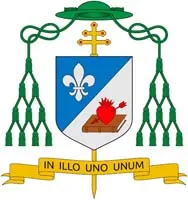
The current prefect for the Dicastery for Bishops took his episcopal motto from a line in a sermon by St. Augustine: “Nos multi in illo uno unum,” (“Though we are many, in the one Christ we are one”). Prevost served as the prior general of the Augustinian order for 12 years. His coat of arms includes the seal of the Augustinian order and a “fleur de lis” symbolizing the Virgin Mary.
Cardinal José Cobo Cano, 58, Spain, “In misericordia Tua, confidere et servire” (“In your mercy, trust and serve”).

When he was ordained an auxiliary bishop of Madrid, Cobo explained: “Looking back at my life’s journey … I see two fundamental things, entrusting myself to the mercy of God and service, which is what Assisi awakened in my vocation.” His episcopal coat of arms includes a cross with the five wounds of Christ, a wall symbolizing Our Lady of Almudena, and the basin that priests use to wash their hands. “I believe that kneeling down and washing the feet of others is a place of learning for the disciple, from which the Eucharist and the Church are born,” he said.
Cardinal Américo Aguiar, 49, Portugal, “In manus Tuas” (“In Your hands”).

The Portuguese bishop who organized the 2023 World Youth Day chose his spiritual motto in tribute to the late Bishop António Francisco dos Santos of Porto, whose motto came from the last words of Christ as recorded in Luke 23:46: “Father, into your hands I commend my spirit.” The cardinal-elect recently unveiled a new coat of arms designed by Italian heraldic designer Giuseppe Quattrociocchi. It features the colors of the Portuguese flag as well as symbols from Pope Francis’ coat of arms — the seven-pointed star symbolizing the Virgin Mary and the tuberose symbolizing St. Joseph — to express his gratitude to the Holy Father.
Cardinal Protase Rugambwa, 63, Tanzania, “Mwanza na mwisho” (“The beginning and the end” in Swahili).
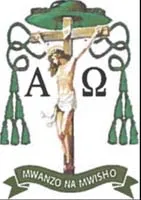
The motto of the current coadjutor archbishop of Tabora, Tanzania, comes from a line in the Book of Revelations 21:6: “I am the Alpha and the Omega, the beginning and the end.” Rugambwa chose to have a crucifix completely replace the usual shield in his episcopal coat of arms. The crucifix has the Greek symbols for Alpha and Omega on either side.
Cardinal Sebastian Francis, 71, Malaysia, “Fiat voluntas tua” (“Thy will be done”).

The Malaysian bishop chose a line from the “Our Father” in Latin, “Thy will be done,” as his spiritual motto. His episcopal coat of arms has a paschal lamb holding a white banner with a red cross, symbolizing Christ’s victory over death. Francis has served as the bishop of Penang since 2011 and has been the president of the Catholic Bishops’ Conference of Malaysia, Singapore, and Brunei for seven years.
Cardinal Stephen Brislin, 67, South Africa, “Veritas in Caritate” (“Truth in Love”).

The archbishop of Cape Town’s motto comes from St. Paul’s Letter to the Ephesians 4:15. Brislin unveiled a new coat of arms just ahead of the consistory, which includes a red Basotho hat representing Brislin’s root in the Free State and an anchor reflecting Cape Town’s location as the Cape of Good Hope. In reference to Brislin’s episcopal motto, the South African bishops’ conference said that the cardinal-designate “has a rare gift of combining gentleness with firmness” and “presents a good balance between the teaching of the Church and pastoral sensitivity.”
Cardinal Ángel Sixto Rossi, SJ, 65, Argentina, “En todo amar y servir” (“In All Things to Love and Serve” in Spanish).

The Jesuit archbishop of Córdoba, Argentina chose a maxim of St. Ignatius of Loyola, the founder of the Society of Jesus, as his motto. His Ignatian spirituality is further communicated in the IHS monogram at the top of his coat of arms, which is an abbreviation for the name of Jesus in Greek and the seal of the Jesuit order. Rossi is known in Argentina for offering the Ignatius spiritual exercises.
Cardinal François-Xavier Bustillo, OFM Conv, 54, France, “In ipso vita erat” (“In him was life”).

Bustillo serves as the bishop of the French island of Corsica and his episcopal coat of arms includes the traditional symbol of Corsica, the Moor’s Head. The Spanish-born Conventual Franciscan also incorporated the crossed arms from the Franciscan order’s coat of arms at the top of his episcopal crest. Bustillo served as the custos of the Franciscan’s French province for 12 years. His motto comes from the prologue of the Gospel of John 1:4.
Cardinal Víctor Manuel Fernández, 61, Argentina, “En medio de tu pueblo” (“Among your people” in Spanish).

The new prefect of the Vatican Dicastery for the Doctrine of Faith took his spiritual motto from a line in the Old Testament’s Book of Kings: “I, your servant, among your people,” the words of Solomon in 1 Kings 3:8. When he was the archbishop of La Plata, Argentina, Fernández chose a simple emblem with a cross, a dove, and a shepherd’s crook.
Cardinal Claudio Gugerotti, 67, Italy, “Per orientalem viam” (“By the Eastern road”).

Gugerotti chose the episcopal motto “By the Eastern Road” long before he was named prefect of the Dicastery for the Eastern Churches in 2022. He holds a doctorate in eastern ecclesiastical sciences from the Pontifical Oriental Institute, of which he is now the grand chancellor. The Vatican diplomat formerly served as apostolic nuncio to Great Britain, Ukraine, Belarus, Georgia, Azerbaijan, and Armenia.
Cardinal Stephen Ameyu Martin Mulla, 59, South Sudan, “Joy in the eternal word made flesh.”

The archbishop of Juba chose to have his episcopal in English, rather than Latin, as have many bishops in South Sudan. His episcopal coat of arms includes African drums, a traditional shield, and a golden cross.
Cardinal Emil Paul Tscherrig, 76, Switzerland, “Spes mea Christus” (“Christ is my hope”).

The current apostolic nuncio to Italy chose to use the traditional coat of arms of his family, which incorporates a “T” in the center for “Tscherrig.” The Swiss cleric is the first non-Italian to serve as the Vatican’s ambassador to Italy. His motto is similar to the Catholic Church’s Easter Sequence, “Surrexit Christus, spes mea,” (“Christ, my hope, has risen.”)
Cardinal Luis Rueda Aparicio, 61 Colombia, “Permanezcan en mi amor” (“Remain in my love” in Spanish).
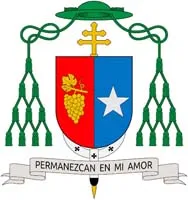
The archbishop of Bogotá took his motto from Jesus’ words to the apostles at the Last Supper in John 15:9: “As the Father loves me, so I also love you. Remain in my love.”
Cardinal Ángel Fernández Artime, SDB, 63, Spain.
Father Artime will be made a cardinal before he is consecrated as a bishop. He has been the rector major of the Salesian order since 2014 and has come to an agreement with Pope Francis that he will remain in the role for one more year after his creation as a cardinal.


